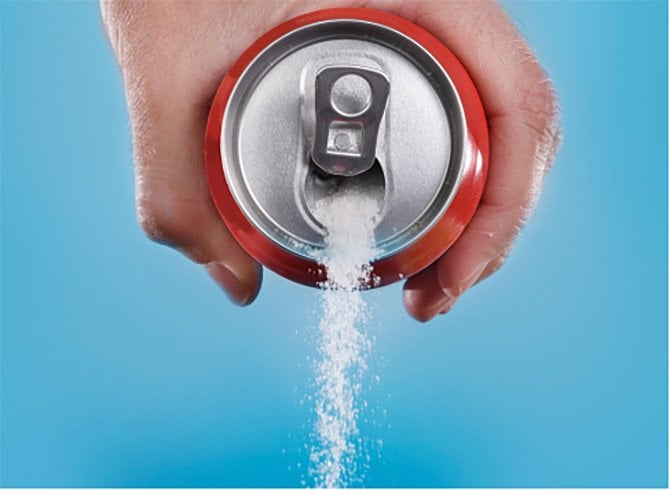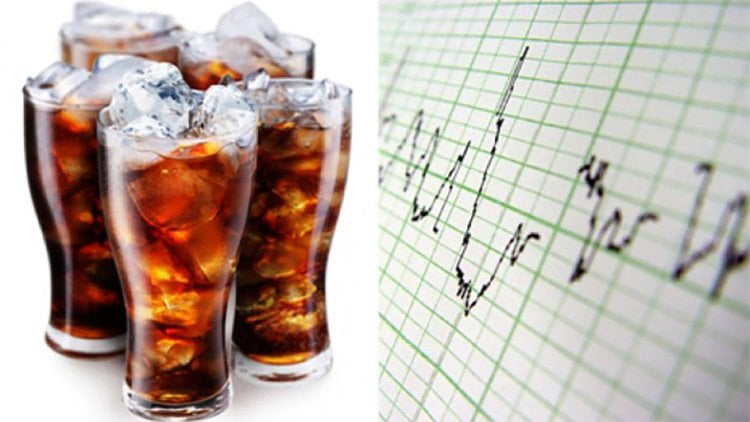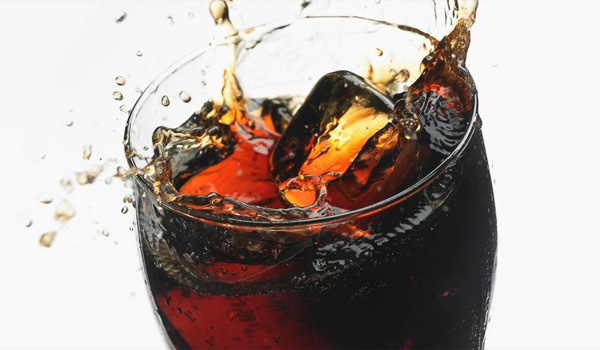
While we all love to sip into our tall glass of soda, numerous studies have time and again shown that the negative effects of drinking soda on your health, waistline, and teeth are countless. We do ignore them often or try as much but in the long run, they have proved to be far more dangerous than we would imagine.
So what are these health risks and how much of soda is a little too much? Read on to know why is soda bad for you.
Damaging Kidneys
Soda can cause a serious decline in effectiveness of our kidneys and hamper its functioning. In an 11-year-long study taken by Harvard Medical School that included 3,318 women, researchers have found that diet cola doubles the chances of kidney failure.
Incites Diabetes
Soda also increases diabetes risk. High amounts of sugar present in soda increases the level of stress on our pancreas, potentially making it unable to maintain the amount of insulin needed by human body. Teenagers enjoy about two drinks every day, and these two servings of sugary drinks increase the risk of Type 2 diabetes by 25%.
Affects Heart
Many of us didn’t know that Soda cans are most often lined with BPA. This is the endocrine disruptor bisphenol A (BPA), which peaks the chances of heart disease, causes obesity, and many times causes problems in the reproductive system of human bodies.
Causes Dehydration
Though many of us pick a can of soda to quench our thirst the truth remains that soda dehydrates us. The caffeine present in soda drinks is diuretic that promotes urine formation, causing that extra round to the restroom. When the cells of our body get dehydrated they face difficulty absorbing nutrients and make it tougher for the body to remove waste.
Toxic coloring agents
Caramel coloring agent used in soda is another agent to increase chances of cancer. The artificial coloring is obtained through chemical processing, and not gained from caramelized sugar as many think. The sugars are made to react with ammonia and sulfites under high temperature and pressure. These chemical reactions then result in the formation of 2-methylimidazole and 4 methylimidazoles. In many government-conducted studies, these have been shown to cause liver, lung, or thyroid cancer or even leukemia at times.
Such caramel coloring in food items results in vascular issues. Dr. Nehal N. Mehta, director of Inflammatory Risk Cardiology at the University of Pennsylvania declared a direct link between such caramel-containing products and vascular problems.
Adds extra calories
Now we all know that soda is high in calories. A 20 ounce can of coke with 17 teaspoons of sugar contains 240 calories. These are all empty calories without any nutritional value. An average adult would take over an hour of work out to burn off these unnecessary calories. Sometimes they also use artificial sweeteners that directly increase the chances of cancer.

Source: watchfit.com
Hampers Body Mechanism
The caffeine in soda drinks often hampers the body’s ability to absorb magnesium. According to Carolyn Dean, M.D., N.D. Magnesium is vital for the overall functioning of the human body and plays a great role in the detoxification processes and is important for minimizing the damage caused by heavy metals, environmental chemicals, and other toxins.
Causes Obesity
Soda rises risk of obesity in children also and every time you hand a can of soda to your kid you increase the danger of him getting affected by obesity by about 60 percent. Sugary drinks are connected to a number of other health problems as well.
Decays tooth enamel
Now in case you are wondering are carbonated drinks bad also, let’s tell you that one can of aerated drink cause a decay in dental enamel. Lab testing on soda acidity has projected that the quantity of acid in these drinks are enough to wear away our dental enamel. pH levels in say a can of coke can be as low as 2.5, as compared to a frame of reference battery acid that has a pH of 1. Water, on the other hand, has a pH of 7.0.
Weakens Bones
Still not convinced? Still brooding over the question, is diet soda bad? Here’s another reason for staying away from soda is that it depletes our mineral levels. Sodas which contain phosphoric acid take out the much-needed calcium from our bones thereby making them weak. After studying the pattern in several thousand men and woman around the world, researchers at Tufts University concluded that women who drank 3 or more cola-based sodas a day, suffered from a condition where their bone density was 4% lower in hips and joints. Point to note is that researchers had controlled their intake of calcium and vitamin D.
[sc:mediad]
Slows down metabolism
You may also want to know of the adverse effects soda has on your metabolism. Dr. Hans-Peter Kubis, the director of the Health Exercise and Rehabilitation group at Bangor University in England, has found that drinking soda on a regular basis can actually change the metabolism in human body. Participants drank 140 grams of this sugary drink every day for a period of four weeks. It resulted is appalling changes in their metabolism. After the experiment period, the participants found it way more difficult to burn fat and calories through the regular workout.
Heart Diseases
Soda also leads to many heart disease in men. With each can consumed a day the risk of heart disease increases by 20% in men. Drinking more than a can of soda every day accelerates the risk for heart disease and poor metabolic syndrome. As said by Ravi Dhingra, M.D., lead instructor in Medicine at Harvard Medical School “If you are drinking one or more soft drinks a day, you may be increasing your risk of developing metabolic risk factors for heart disease.” A study piloted in Framingham included about nine thousand individuals and was conducted over a stretch of four years. Researchers found that individuals who consumed one or more cans of aerated drinks a day had experienced 48 % increased risk of metabolic syndrome as compared to those consuming lesser than one soda beverage a daily.

Source: mensfitness.com
Stalls weight loss
Those who are trying to lose weight should stay away from soda as it does not help you lose weight, in fact, makes it difficult. A study conducted in University of Texas Health Science Center showed that the more diet sodas a person imbibed, their waistlines became prone to an increase of 500% greater than those who stayed at bay.
Chronic diseases
Almost all diet sodas carry mold inhibitors, most commonly known as, sodium benzoate or potassium benzoate. “These chemicals have the ability to cause severe damage to DNA in the mitochondria to the point that they totally inactivate it – they knock it out altogether,” told Peter Piper, a professor of Molecular Biology and Biotechnology at the University of Sheffield in the U.K., to a British newspaper. The Center for Science in the Public Interest has declared that the preservative causes asthma, hives and other allergic conditions. Again, did you know soda directly worsens the cases of Asthma? A study done on 16,907 participants above the age of 16, in South Australia, proved that those used to the consumption of greater level of soda suffered from higher chances of being affected by asthma and COPD
The above mentioned bad effects of soft drinks are all clinically proven by reputable institutions. We don’t ask you to cut of soda from your life totally, we understand you might want to enjoy a treat once in a while, but the problem inflates when this “once in a while” becomes “regularly” or “daily”. For your own wellbeing and for the betterment of your family, start cutting down your family’s collective consumption of soda or carbonated drinks from today itself.
